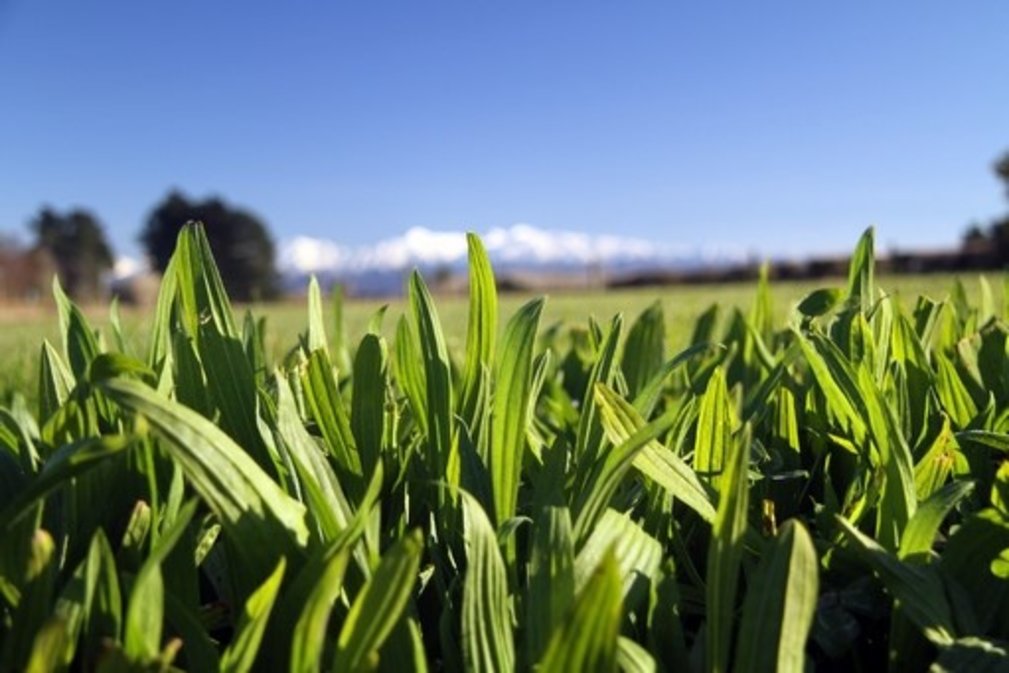NZ’s newest plantain wins in winter
With less than 12 months before pastoral farmers must comply with strict limits on nitrogen use, plantain is back in the spotlight for spring sowing this year.
One plantain in particular is head and shoulders above others for cool season growth.
That means it mops up soil nitrogen at the riskiest time of the year for leaching, plus it provides more feed when it is most needed on farm.
Pasture systems specialist Blair Cotching says Captain CSP (cool season plantain) has been specifically bred to keep growing during the cooler months of the year, when traditional plantains are dormant.
This is very important for reducing soil N losses, particularly in the current regulatory environment.
But Captain’s value to both red meat and dairy producers extends beyond a strong environmental profile, says Blair, who heads the pasture systems team at Barenbrug.
The newest plantain available to New Zealand farmers, Captain also grows strongly in other seasons, particularly summer.
“In terms of stock performance, it’s palatable, easily digested and rich in essential minerals and trace elements. So there are distinct animal nutrition benefits, on top of its use as an N-mitigation tool.”
Grazing utilization is good, because the new cultivar remains obviously upright in the pasture year-round.
Captain has shown good persistence in mixed-sward trials. Well-managed, it will survive for up to three years.
Blair says a key benefit is the ability to use the new plantain in different ways, depending on farmers’ individual priorities.
In red meat systems, for example, mixed with red and white clovers, Captain offers a high liveweight gain finishing crop. Alternatively it can be part of a perennial pasture mix.
Dairy farmers can sow it as a specialist three to four year pasture, mixed with hybrid ryegrass and white clover; or include it with new spring-sown perennial ryegrass pastures.
“It’s also well-suited to over-sowing into thin pastures in spring, once soil temperatures warm up.”
In situations where farmers want to over-sow clover seed into existing thin pastures, to improve their legume content, plantain can also be a useful addition, as it will occupy the space left by missing ryegrass.
“Plantain works well from spring sowing, because it is deep rooting, whereas without irrigation ryegrass can’t be reliably spring sown,” Blair explains.
Captain CSP, photographed in Canterbury in July.


